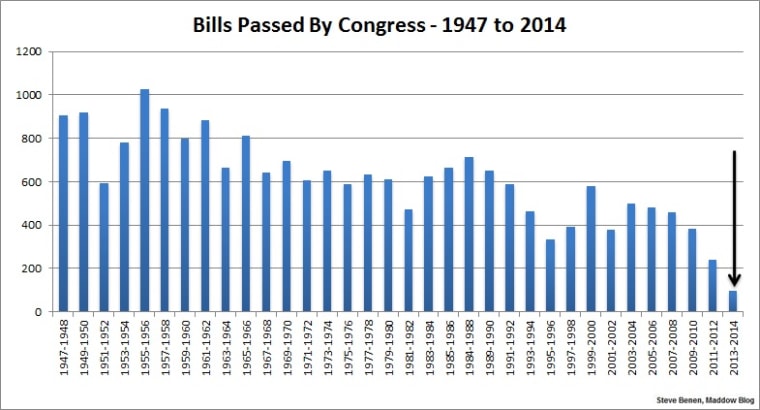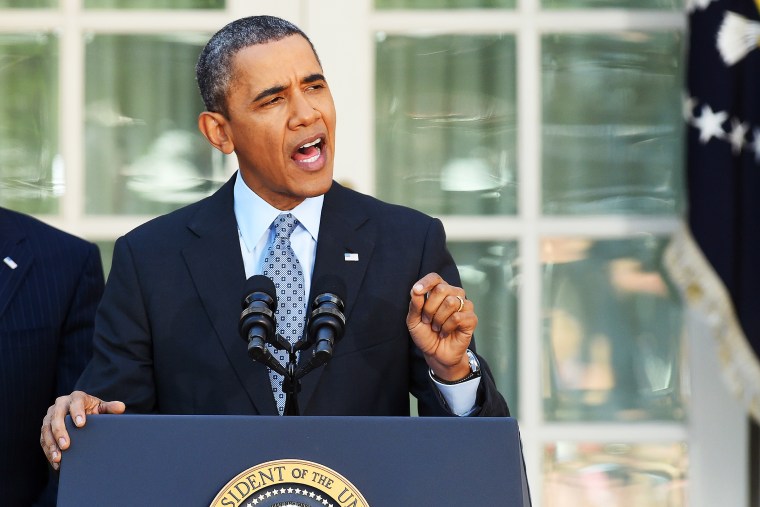A few hours after a Senate Republican filibuster killed the Paycheck Fairness Act, President Obama spoke at a fundraiser for Democratic congressional candidates in Houston, and Congress' inability to legislate was apparently on his mind.
President Barack Obama sharply criticized what he called the least productive U.S. Congress in modern history on Wednesday in a fund-raising speech that he used to try to energize Democrats to vote in November congressional elections. Obama blasted Republicans in the U.S. Senate for blocking a Democratic-supported bill earlier in the day aimed at addressing a gap in pay between male and female workers. Republicans argued that pay discrimination is already illegal. Obama also cited Republicans' refusal to agree to an immigration overhaul and an increase in the minimum wage as examples of what he called obstruction by his political opponents.
Though the president's remarks were not recorded, the pool report quoted him as saying, "This has become the least productive Congress in modern history, recent memory. And that's by objective measures -- just basic activity."
The notion of a do-nothing Congress comes up from time to time, so it's probably worth pausing occasionally to ask whether Obama's criticism is true.
In reality, it is.

So far, the 113th Congress -- the current one that officially began early last year -- has passed a grand total of 98 bills. That includes literally everything, from national security to health care to bills that change the names of post offices.
If that total sounds at all impressive, just compare it to every other modern Congress. Indeed, as the above chart shows, this Congress is easily on track to pass fewer laws than any Congress since clerks started keeping track nearly seven decades ago.
In fairness, the above chart tells an incomplete picture, since the current Congress isn't finished yet and I'm comparing it against other two-year totals.
But since lawmakers don't intend to work too much between now and the end of the year, chances are extremely good that this Congress will break the record -- a record set by the last Congress, which governed (or at least tried to) in 2011 and 2012.
Indeed, even if lawmakers showed an unexpected interest in legislating and quickly doubled their productivity before the year ends, this Congress would still be the least productive on record.
Some political scientists will argue that these bill counts aren't the ideal metric for evaluating a Congress, and it's a credible point -- as we've discussed before, quality tends to matter more than quantity, and if a Congress passes worthwhile legislation, that arguably matters more than the raw totals.
But in the current case, this doesn't help -- lawmakers haven't been passing good bills, either.
